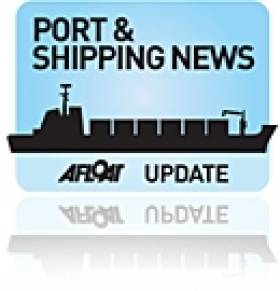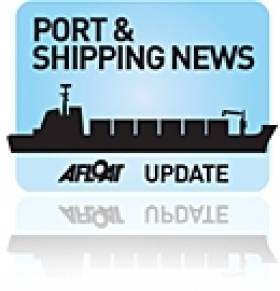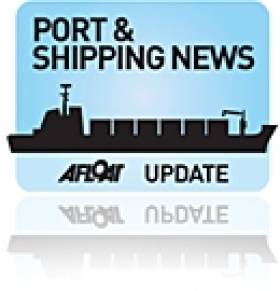Displaying items by tag: Pantanal
Marine Notice: Casualty or Incident Reporting
#MarineNotice - The latest Marine Notice from the Department of Transport, Tourism and Sport (DTTAS) reminds all mariners of the obligation to report marine casualties to the appropriate authorities in the event of an incident.
The notice refers to the official report by the Marine Casualty Investigation Board (MCIB) into the grounding of the cargo ship Pantanal (more details) at Rossaveal on 31 March 2011, which can be read in full HERE.
The report recommends that mariners be reminded of the European Communities (Vessel Traffic Monitoring and Information System) Regulations 2010, as amended, which require the operator, agent or master of a ship in Irish waters to immediately report to the Irish Coast Guard any incident affecting the safety of the ship, or any incident liable to lead to pollution of the waters around Ireland or any other EU member state.
Full details are include within Marine Notice No 3 of 2013, a PDF of which is available to read or download HERE.
Cargoship to Attempt Second Ferry-Lift
In the first attempt to load the ferries last week, the Clann na nOileáin fell into the Dun Aengus Dock when the sling rope broke causing the French built 234-passenger craft to fall some 12m /40ft. Onboard the ferry were three people who were taken to hospital but were later released.
Thor Gitta is fitted with two deck-mounted cranes and this feature is also similarly found on the Patanal, which grounded in Casla Bay at the entrance to Rossaveal, nearly a fortnight ago. The German owned 7,002grt was the first vessel chartered to bring the fast-ferries from Rossaveal, but the ferries were subsequently sailed to Galway after the ship was refloated.
The 120m Patanal has undergone "underwater and internal inspections and repairs," according to Capt. Brian Sheridan, harbourmaster of Galway Port Company though he added "that the vessel would remain subject to an inspection by the Marine Survey Office before she can be released".
According to a statement released by the Patanal's owners, Harren & Partner, the vessel is then to be taken to dry dock in Bremerhaven for further repairs.
Since the incident the vessel has been at anchorage off Black Point on the Co. Clare side of Galway Bay where she was monitored initially for pollution and the tug Celtic Isle in attendance. The tug is operated by Celtic Tugs and is normally based in Foynes, Co. Limerick.
Inspection of Refloated Ship in Galway Bay Under Way
Marine surveyors are currently inspecting the German cargo ship which was refloated yesterday in Galway Bay after running aground early on Thursday.
The Irish Coast Guard confirmed to The Irish Times that no pollution had occurred in the grounding of the Pantanal on the south Connemara coast.
The 120m vessel was refloated at high tide yesterday morning with help from the Celtic Isle tug from Foynes in Co Limerick.
Ship managers Harren & Partner said the hull would undergo a diver inspection before the vessel sails for dry dock.
Yesterday Minister for the Marine Simon Coveney welcomed the "successful operation in very challenging conditions" and confirmed a thorough investigation of the incident by the Marine Casualty Investigation Board.
The ship had been sailing from the Mediterranean to Rossaveal to collect two monohull ferries, sold to Mauritius, that had been built to serve the Aran Islands route.
The Irish Times has more on the story HERE.
Coveney Welcomes Refloating of Ship at Rossaveal
Minister Coveney paid tribute to all those involved in what he described as "a very successful operation in very challenging conditions. Having visited Ros an Mhíl yesterday evening and spoken to those involved, including the Harbour Master and the Coast Guard, the scale of the challenge was evident, involving such a large vessel carrying a substantial fuel load. There was a very real threat to the marine environment and it is a testament to the professionalism of all those involved that such a threat was averted."
The Minister said that he was "glad to have had the opportunity to see at first hand the professionalism and competence of all the agencies involved, including the Harbour Master and his staff, the Irish Coast Guard, An Garda Siochana and Galway County Council." Minister Coveney also acknowledged the assistance and co-operation provided by the ship's representatives in reaching a successful conclusion to this incident.
Minister Coveney confirmed that "the incident would be thoroughly investigated by the Marine Casualty Investigation Board". The Minister said that "the vessel is now anchored off the north Clare coast where it is currently undergoing a detailed inspection. The vessel will continue to be monitored by the Irish Coast Guard on the AIS system (Automatic Identification System)."



























































